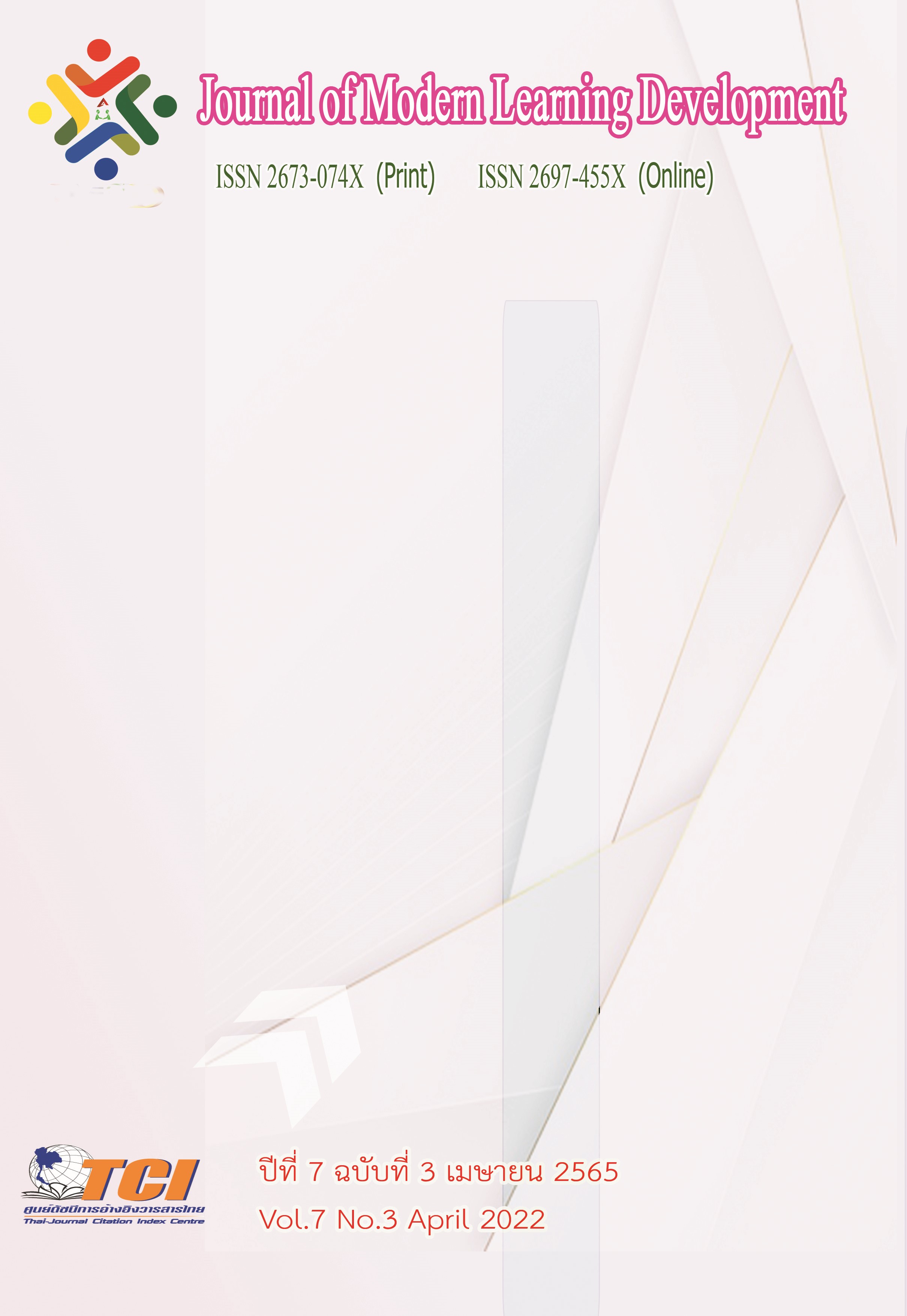The Administration according to the Seven Kalyāṅamitta Dhamma Principles of the Charity Schools Administrators of Buddhist Temples in Khon Kaen Province
Main Article Content
Abstract
The objectives of this research were: 1) to study the administration according to the Seven Kalyāṅamitta Dhamma principles of charity school administrators of Buddhist temples; 2) to propose a guideline for the administration according to the Seven Kalyāṅamitta Dhamma principles of charity school administrators of Buddhist temples in Khon Kaen Province. The samples of this study were 150 of administrators and teachers in charity schools of Buddhist temples in Khon Kaen Province and 10 interviewees. The results of quantitative data analysis were used to synthesize the qualitative data. The consistency index was 0.80. The reliability value of a questionnaire was (0.90) according to Cronbach's method.
The research results were as follows:
1) The administration, according to the Seven Kalyāṅamitta Dhamma principles of charity school administrators of Buddhist temples, was rated at a high level of practice. The aspect of academic administration using Piyo (Love) and Garu (Respectable) principles was highly practiced, followed by budget administration using the Bhāvanīyo (Adorable) principle and the principle of Vattā Ca (being a counsellor), general administration using No Caṭṭhāne Niyojaye (never exhorting groundlessly) and personnel administration using Vacanakkhamo (being a patient listener) and Gambhīrañca Kathaṁ Kattā (able to deliver deep discourse) respectively.
2) The guideline for the administration according to the Seven Kalyāṅamitta Dhamma principles of charity school administrators of Buddhist temples in Khon Kaen Province: the school administrators should be the ones who propose guidelines for working in response to the Ministry of Education's policies. Executives should have new methods used in the operation. There is a promotion and support for teachers to use Information Technology in learning management and should always develop oneself as well as seek new knowledge to be passed on to others to follow in order to work effectively and drive the organization to be successful.
Article Details
References
นารีรัตน์ กว้างขวาง. (2561). การบริหารงานโรงเรียนโดยใช้หลักกัลยาณมิตรธรรม 7 ของโรงเรียนในสังกัดสำนักงานเขตยานนาวา กรุงเทพมหานคร. วิทยานิพนธ์พุทธศาสนมหาบัณฑิต สาขาวิชาการบริหารการศึกษา. บัณฑิตวิทยาลัย: มหาวิทยาลัยมหาจุฬาลงกรณราชวิทยาลัย.
บุญชม ศีสะอาด (2532). การวิจัยเบื้องต้น. (พิมพ์ครั้งที่ 2). กรุงเทพมหานคร: โรงพิมพ์สุวิริยาสาร์น.
ปิยะดา ก่อวุฒิกุลรังสี, อินถา ศิริวรรณ และคณะ. (2561). แนวทางการพัฒนาภาวะผู้นาผู้บริหารตามหลักกัลยาณมิตรธรรมโรงเรียนป้อมนาคราชสวาทยานนท์ สังกัดสานักงานเขตพื้นที่การศึกษามัธยมศึกษา”, วารสารครุศาสตร์ปริทรรศน์ฯ 45. 5 (3), 35-37.
พระครูพิบูลกิจจารักษ์. (2563). ศึกษาวิเคราะห์ความเป็นกัลยาณมิตรในการสอบอารมณ์ผู้ปฏิบัติวิปัสสนากัมมัฎฐาน. ดุษฎีนิพนธ์พุทธศาสตรดุษฎีบัณฑิต สาขาวิชาพระพุทธศาสนา. บัณฑิตวิทยาลัย: มหาวิทยาลัยมหาจุฬาลงกรณราชวิทยาลัย.
พระปิฎกโกศล และคณะ. (2562). หลักกัลยาณมิตรธรรม 7 ในพระไตรปิฎกสำหรับครู. วารสารมหาจุฬา นาครทรรศน์. 6 (9), 14-18.
ราชกิจจานุเบกษา. (2562) พระราชบัญญัติการศึกษาแห่งชาติ เล่มที่ 136 ตอนที่ 57 ก. (ฉบับที่ 4) 1 พฤษภาคม พ.ศ. 2562.
อุทัย บุญประเสริฐ. (2532). การวางแผนทางการศึกษา. กรุงเทพมหานคร: โรงพิมพ์จุฬาลงกรณ์มหาวิทยาลัย.


